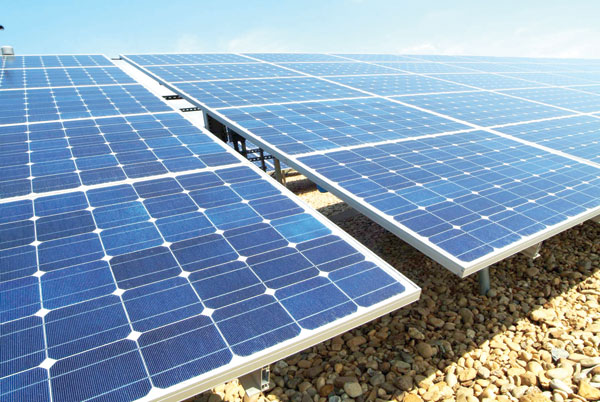Renewable energy will attract investment - — Otu-Danquah
 Government has created the enabling environment to ensure the attainment of a 10 per cent Renewable Energy (RE) target in the energy sector by 2020, following the passage of the RE Act, 2011 (Act 832) aimed at stimulating massive investment into the renewable energy sector. This would, however, require the effective support of all development partners, bilateral, multilateral and indeed private investors to ensure the successful implementation of the favourable regulatory framework into a win-win situation.
Government has created the enabling environment to ensure the attainment of a 10 per cent Renewable Energy (RE) target in the energy sector by 2020, following the passage of the RE Act, 2011 (Act 832) aimed at stimulating massive investment into the renewable energy sector. This would, however, require the effective support of all development partners, bilateral, multilateral and indeed private investors to ensure the successful implementation of the favourable regulatory framework into a win-win situation.
Advertisement
The Head of Renewable Energy at the Energy Commission, Mr Kwabena Otu-Danquah, said the type of resources that were available included solar which was abundant; available wind of about 300 mega watts; and waste to energy went into setting of the 10 per cent target.
“The waste was also quantified, but then, we have to realise that though we have garbage, they are of low quality in terms of converting it into energy. We have a lot of organic components in there, moisture and really if you want to convert it into energy, you will have to do a lot of work.”
“We have crop residues in abundance but they are not centralised. You need to transport to a sector and that will bring a lot of challenges. So all these things were factors before setting the target but then it could be reviewed anytime. There is evidence that we should be able to go beyond the target but we have to start from somewhere,” he explained.
Mr Otu-Danquah said some provisions of the RE act included a Feed-In-Tariff (FIT) rate, which shall give preferential and special price to electricity generated from renewable energy sources and shall be guaranteed for a period of 10 years, and subsequently be subjected to review every two years.
“The FIT rates approved by Public Utilities Regulatory Commission shall be published in the Gazette and in at least one national daily newspaper. This consists FIT rate, renewable energy purchase obligation, connection to the distribution and transmission systems and RE Fund,” he said.
Mr Otu-Danquah was speaking on the topic “The Case for Renewable Energy in Ghana.” at an energy forum in Accra organised by the Ghanaian-German Economic Association (GGEA), an alliance of Ghanaian and German companies, entrepreneurs, institutions, organisations and individuals with business and commercial interests in the two countries.
The Renewable Energy Fund had been established under the Act to provide financial resources for the promotion, development and utilisation of renewable energy resources. Money from the fund shall be applied for the provision of financial incentives, FIT, capital subsidies and for the promotion of scientific, technological and innovative research into renewable energy.
He said sources of money of the RE Fund would include money approved by Parliament, premiums, donors, etc. He said though it was there for everybody, there were going to be rules and regulation to govern it.
With regard to biofuel, he disclosed that biodiesel fuel (B100) and bioalcohol standards had been developed and gazetted and over 100 biogas systems had been installed in public buildings, schools and hotels.
An Energy Expert, Engineer Robert Woode, said it was unjustifiable that Ghana was in energy crisis looking at the alternatives we have. He said Ghana was in the tropics and so had enough sources to generate power.
“It is sad that for over 50 years we have not been able to implement policies to solve our energy problems. Industries are suffering when we have enough sunlight to meet our energy requirement, wind power is available and the production of biodiesel for general transportation needs only require caustic soda, or potash, and ethanol or methanol,” he said.
He said we must have policies that would look at building energy software and not hardware always.
Some private sector energy generators shared their experiences at the forum. The Chairman of Sunon Asogli Power (GH) Ltd, Mr Kwaku Lee, complained that payment duration for their supplies had been a major headache.
“It takes close to seven weeks for ECG to settle one month’s bill. Also, something needs to be done about the tariff to keep Independent Power Producers in business,” he said.
The Vice-President of the GGEA, Mr Christian Poteker, said Ghana needed to be pragmatic; changed the way we run the sector to be able solve the challenges facing the sector.
Story by Ama Amankwah Baafi




